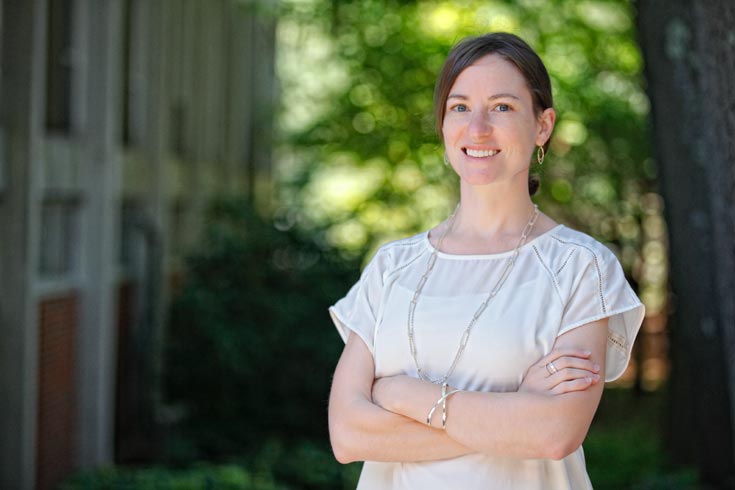Mary Fischer Explains the Impact of Brandeis’ Commuter Program on Grad Students
 January 18, 2017
January 18, 2017
By Simon Goodacre | Graduate School of Arts and Sciences
Last November, Brandeis launched a carpooling service called Commute Green for members of the Brandeis community who want to share rides to campus. Many other institutions have implemented similar programs, including MIT, Harvard, Stanford, Google, Hulu and Amazon.
None of the 2,000 graduate students at Brandeis live on campus, and many of them commute several times a week. We caught up with Mary Fischer, manager of the Sustainability Programs Office, to talk about how this initiative will impact those students.
How does the carpooling system work?
The website is a "one-stop shop" for finding the best way to campus other than driving alone. Simply log in, enter your start and destination to see your potential carpool partners, and find other green commuting options including public transit, biking and Brandeis shuttle routes. The platform will match you with others who have a similar travel plan, whether your schedule is rigid or all over the place. You can then contact the person with whom you are potentially a match. You can join the site with your regular Brandeis login information, so no need to create a new username or password. Only individuals with a brandeis.edu email address can join.
How do you think graduate students will benefit from this program?
The benefits of this program for graduate students are: 1) saving money on gas or public transit; 2) preferred parking for those who receive a carpool parking pass; 3) reduced stress! In fact, the platform will automatically calculate your savings in gas cost, greenhouse gas emissions, and miles, and even calories if you choose to walk or ride your bike to campus. The platform even shows a map of the public bike repair stations and zipcars on and around campus.
How do they sign up?
Visit the website, enter your origin and destination, and select "Request a carpool." That means the platform will make your origin visible to others so you can find each other. It does not in any way commit you to carpooling—it simply makes it possible for you to find a match should you want to find one.
There are separate networks for students and faculty/staff, so graduate students should select the student network on their dashboard or profile. Graduate students may not join the faculty/staff network, even if they are employed on campus.
Have many people signed up already?
We have over 500 users who have logged in, and so far users have logged over 2,000 miles of alternative trips, so there is tons of interest! The key is that users must take the step of "requesting a carpool" to put themselves on the visible map of those who are potentially willing to carpool if the match is right. Attracting a critical mass of users who have made themselves visible is the key to success for this program. If you don't see anyone near you who is also on the map, be patient—it can take some time to build the necessary user base.
What is the goal of this program, in terms of environmental impact?
Commuting is part of Brandeis' overall carbon footprint, so reducing the number of single occupant vehicles on the road will reduce greenhouse gas emissions that directly impact our university measurements. But reducing the number of vehicles on the road also reduces other vehicle emissions such as particulate matter, which is a threat to human health, and it reduces the stress of the drivers involved in the carpool, which is a benefit to human health.
Are there any upcoming programs that graduate students should be aware of?
Yes! Graduate students will soon start seeing compost bins at our campus retail locations including Starbucks, Einstein's and Peet's (we are already composting food waste in dining halls). Additionally, the theme of this year's Leonard Bernstein Festival of the Creative Arts is sustainability (April 27-30).
Our campus recycling rates are half the national average, so graduate students should be participating in helping reduce waste and also recycling what they cannot reduce. It costs the university twice as much to have a trash dumpster hauled away than a recycling dumpster, so recycling saves us money as well.
We are also starting a newsletter - anyone interested in receiving it should sign up here!






